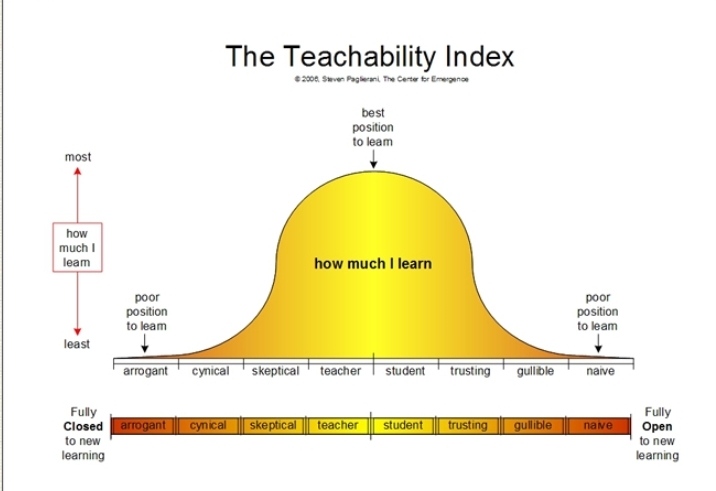“It is a truism that children need adults to help them grow up.”
“It is, however, less known but equally true that adults need children to help them grow into the fullness of maturity.” (1)
The idea that children help adults grow into the fullness of maturity is a profound observation. While it is widely accepted that children depend on adults for their physical, emotional, and intellectual development, the reciprocal relationship—where adults also evolve through their interactions with children—deserves more attention. Here’s an exploration of how this happens:
Fostering Patience and Compassion
- Children’s natural curiosity and unpredictability often challenge adults to cultivate patience. Dealing with their questions, tantrums, and learning processes requires adults to slow down, empathize, and develop greater emotional resilience.
- Compassion is nurtured when adults realize that children, despite their innocence, are navigating a world they don’t fully understand. This awareness can expand an adult’s ability to care deeply and unselfishly.
Rediscovering Wonder and Joy
- Through children, adults are reminded of the simple joys of life. Watching a child marvel at a butterfly or find joy in a mundane activity can rekindle an adult’s sense of wonder and appreciation for the present moment.
- Children’s unfiltered creativity and excitement often inspire adults to reconnect with their inner child and embrace life’s beauty.
Promoting Self-Awareness and Growth
- Parenting or mentoring often forces adults to confront their shortcomings. For instance, when faced with a child’s questions or behavior, adults might reflect on their values, biases, or unresolved issues.
- Children’s observations can be startlingly honest, holding up a metaphorical mirror that helps adults see themselves more clearly and work toward becoming better role models.
Encouraging Adaptability and Learning
- The rapid pace at which children grow and change pushes adults to adapt continually. Whether it’s learning new technologies to stay connected with teens or navigating evolving parenting strategies, adults grow by remaining flexible and open to new ideas.
- Adults often learn alongside children—whether it’s helping with homework, answering philosophical questions, or exploring new hobbies together.
Deepening Purpose and Fulfillment
- Being responsible for a child’s upbringing gives adults a profound sense of purpose. This responsibility often prompts a shift in priorities, encouraging adults to focus on what truly matters—be it family, relationships, or contributing positively to the community.
- The love and connection shared with children can fill emotional voids and provide a lasting sense of fulfillment.
Strengthening Interpersonal Skills
- Interacting with children demands clear, honest, and sometimes simplified communication. This can make adults more effective communicators in all areas of their lives.
- Navigating conflicts or teaching life lessons to children helps adults refine their negotiation, problem-solving, and emotional intelligence.
Contributing to Legacy and Continuity
- Children provide adults with a sense of continuity and legacy. Knowing that they can pass on their knowledge, values, and stories encourages adults to reflect on what they want to leave behind.
- This process often motivates personal growth, as adults strive to model behaviors and values they hope to see in the next generation.
In essence, children do not just depend on adults; they actively shape their growth into wiser, more compassionate, and more fulfilled individuals. The interplay between the innocence of youth and the experience of adulthood creates a dynamic that enriches both lives.
Modern culture often frames parenting more as a burden than the profound opportunity for mutual growth and fulfillment that it truly is. This perception undermines the natural reciprocity between adults and children, diminishing the joy and personal growth that can come from raising the next generation.
Here’s an exploration of why this shift has occurred and how society can reframe parenting as a blessing:
The Cultural Perception of Parenting as a Burden
- Economic Pressures:
- The rising cost of living, childcare, and education makes parenting feel financially overwhelming. Instead of focusing on the relational and developmental aspects of raising children, many parents are consumed by the struggle to meet material demands.
- Time Constraints:
- Modern work culture often leaves parents with little time or energy to deeply engage with their children. This imbalance can lead to feelings of frustration and exhaustion, overshadowing the rewards of parenting.
- Social Expectations and Judgments:
- Parents are frequently subjected to societal pressures to be perfect. The constant critique from social media, family, or peers creates anxiety and a sense of failure, making parenting feel like a never-ending trial rather than a meaningful journey.
How Society’s Narrative Impacts Adults
- Loss of Connection:
- By emphasizing the challenges over the joys, adults miss the profound opportunities for growth and connection that children provide. This one-sided narrative detaches parents from the transformative power of parenting.
- Missed Opportunities for Personal Growth:
- When adults view children as a source of stress rather than inspiration, they miss out on the ways children can teach patience, adaptability, and emotional depth.

- Decline in Community Support:
- Parenting often feels like an isolating task because of the decline of extended family and community involvement. This isolates the experience, turning what should be a collective joy into a solitary struggle.
Reframing Parenting as a Blessing
- Children as Teachers:
- Recognizing that children teach adults as much as they learn is key to shifting this mindset. Their innate curiosity, vulnerability, and creativity are powerful tools for adults to rediscover themselves.
- Valuing the Relationship Over Outcomes:
- Society can benefit from moving away from a results-oriented approach to parenting (e.g., focusing solely on academic success) and emphasizing the value of relationships and shared experiences.
- Building Community Support:
- Normalizing shared responsibility for child-rearing—through extended family, friends, or community networks—can lighten the perceived burden and restore the sense of joy in raising children.
The Mutual Growth Dynamic
- Parenting as Personal Evolution:
- Every challenge presented by children offers adults an opportunity to develop maturity, resilience, and self-awareness. For instance, teaching a child empathy requires adults to model it, deepening their own capacity for compassion.
- A Legacy of Values:
- Parenting allows adults to leave an enduring legacy of love, wisdom, and values. Knowing they are shaping future generations gives life deeper meaning and purpose.
- The Joy of Connection:
- The simple, unfiltered love and laughter that children bring can enrich adults’ lives in ways that no material achievement ever could.
Shifting the Narrative
Society needs to celebrate parenting as a journey of shared growth. Public discourse, media, and policy should:
- Promote realistic, positive portrayals of parenting.
- Provide resources and support systems to alleviate unnecessary burdens.
- Encourage adults to see children not as a drain on their time and energy, but as partners in a mutual journey toward fulfillment and maturity.
By reshaping the narrative, society can transform parenting from a perceived burden into a profound blessing, aligning with the truth that adults need children as much as children need adults.







